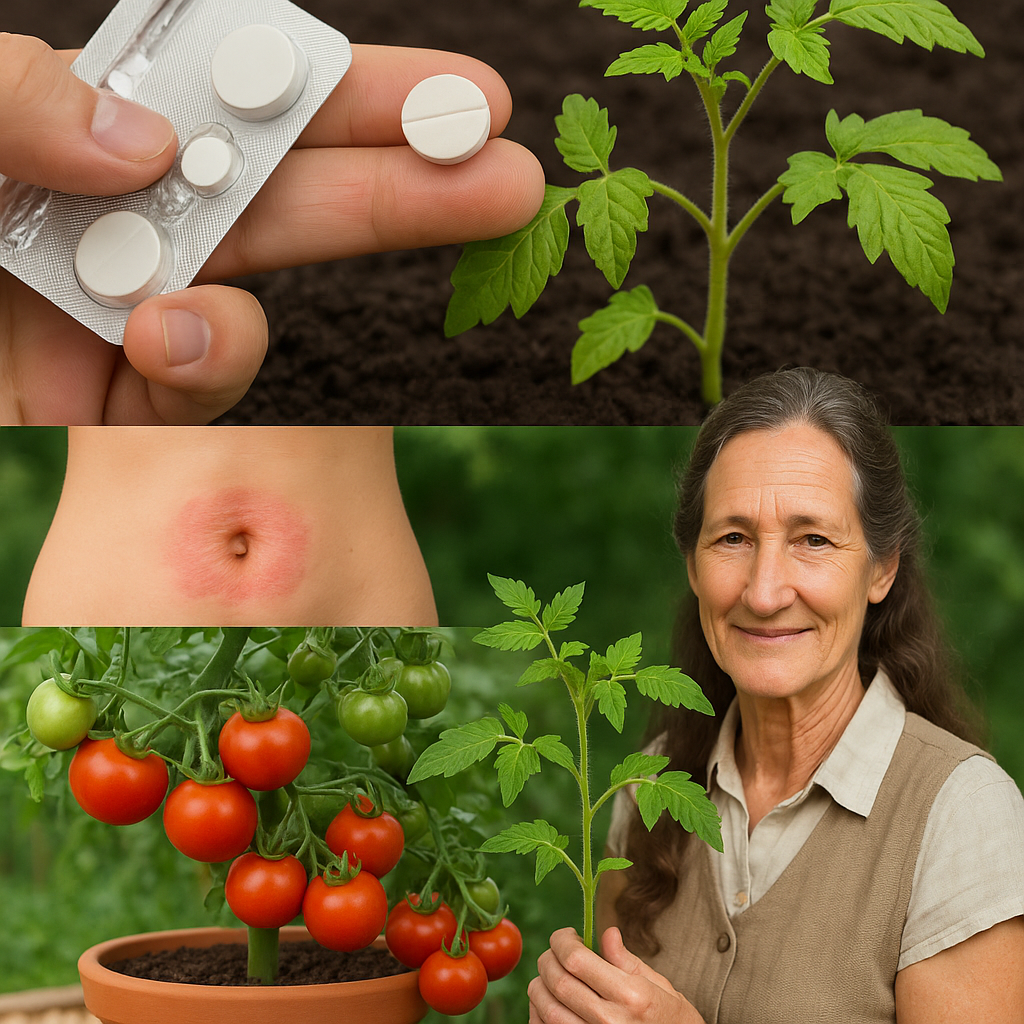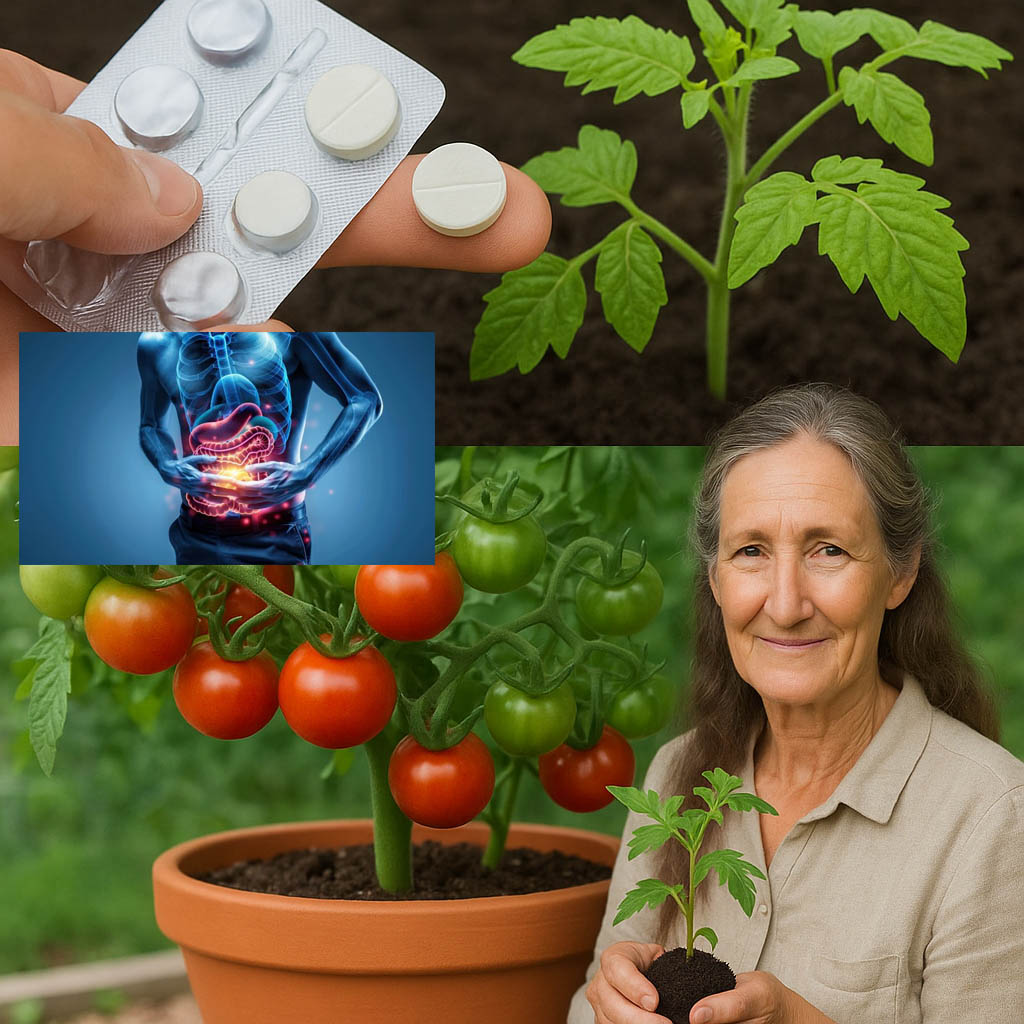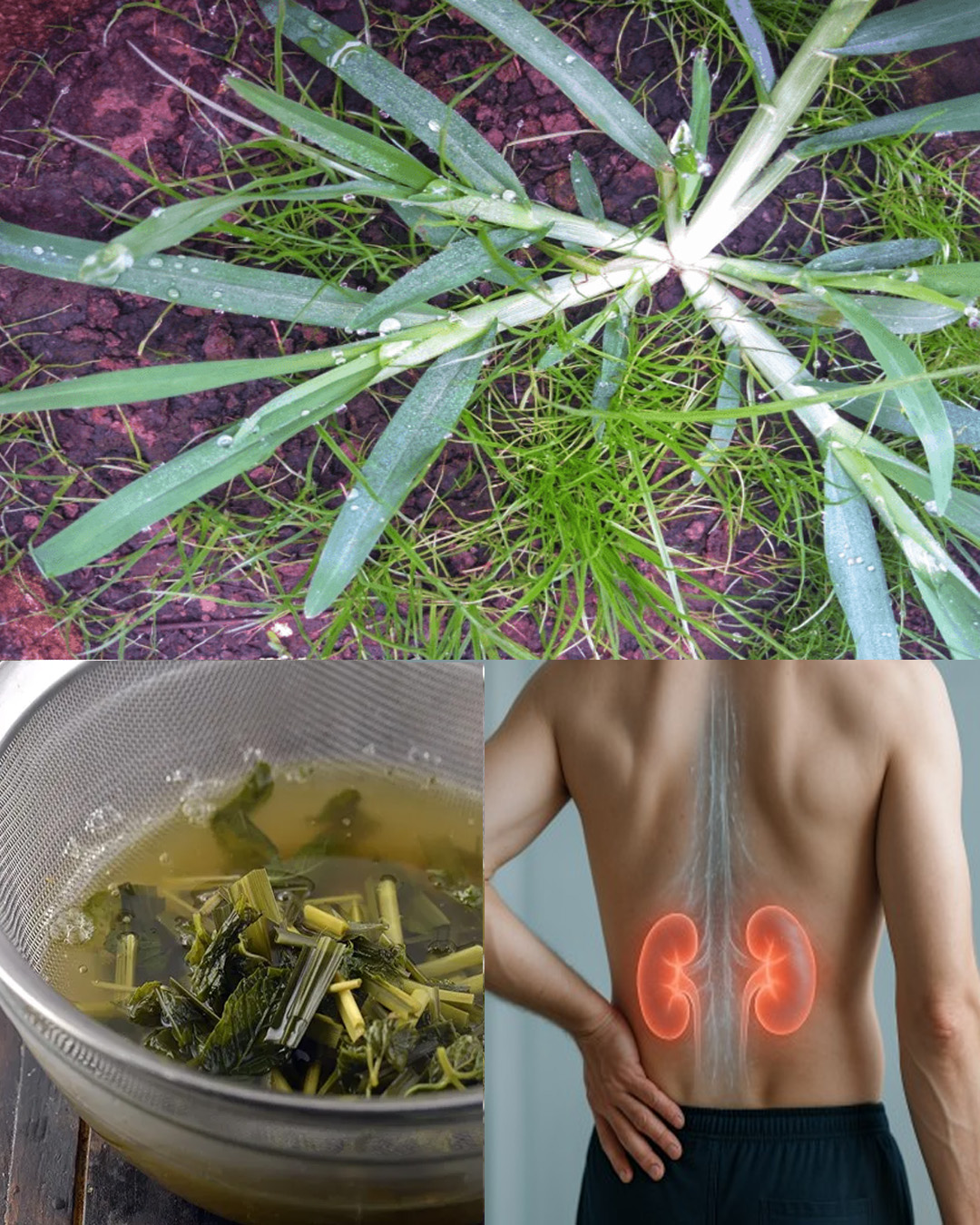Most people know aspirin as a household pain reliever, but your vegetable plants might benefit from it even more than your medicine cabinet. Recent studies and gardener experiments have revealed a surprising truth: aspirin can significantly enhance plant growth, immunity, and yield—especially for common vegetables like tomatoes, peppers, and eggplants.
Here’s how aspirin works in your garden, and how to use it effectively to transform your crops from average to abundant.

💊 Why Aspirin Works for Plants
Aspirin contains acetylsalicylic acid, a compound closely related to salicylic acid—a natural plant hormone that plays a key role in activating plant defense mechanisms against stress, pathogens, and pests.
When applied correctly, aspirin:
- Triggers the plant’s immune response
- Enhances resistance to fungal infections and disease
- Stimulates growth hormones
- Encourages stronger roots and healthier leaves
This concept was tested by researchers at the University of Rhode Island, where vegetables treated with aspirin water showed:
- Improved growth rates
- Higher resilience to stress and disease
- Better overall productivity
🧪 How to Make and Use Aspirin Solution
🌱 Basic Aspirin Spray Formula:
- 4 regular aspirin tablets (325 mg each)
- 4 liters (1 gallon) of water
Instructions:
- Crush the aspirin tablets for faster dissolving.
- Mix into water and stir well.
- Pour into a spray bottle or garden sprayer.
🗓️ How Often to Apply: Spray onto leaves every 3 weeks during the growing season.
🌟 Benefits of Aspirin for Your Vegetable Garden
1. 🌿 Growth Stimulant
Spraying with aspirin water stimulates natural hormones that boost plant growth and vigor. Expect fuller foliage and sturdier stems.
2. 💪 Disease Resistance
Plants become more resilient against fungal diseases like blight and powdery mildew—common issues for tomatoes, peppers, and eggplants.
3. 🌱 Better Root Development
Cuttings soaked in aspirin water root faster and stronger. Perfect for propagation.
4. 🌾 Improved Germination
Soaking seeds in aspirin water before planting improves germination rates and helps seedlings thrive.
5. 🪴 Soil Enhancer
Crushed aspirin tablets placed near plant roots slowly release salicylic acid into the soil, promoting plant health over time.

🧰 Ways to Use Aspirin in the Garden
| Method | Use Case | How to Apply |
|---|---|---|
| Foliar Spray | Boost growth & immunity | Spray leaves every 2–3 weeks |
| Seed Soak | Improve germination | Soak seeds for 6–12 hours before sowing |
| Root Dip | Help cuttings root faster | Soak stems in aspirin water for 2–4 hours |
| Soil Amendment | Ongoing plant support | Bury a crushed tablet near plant base; water well |
🧷 Pro Tips for Best Results
- Use non-coated, plain aspirin tablets—no flavors or added meds.
- Apply in the morning to avoid sunburn on leaves.
- Don’t overspray; too much aspirin may stress plants.
- Test on a small area first, especially for delicate herbs or young seedlings.
⚠️ Caution:
- Avoid aspirin treatment for young seedlings under 2 weeks old unless diluted more.
- Watch for signs of leaf yellowing or browning—reduce dose if needed.
- Aspirin may not benefit all plants equally—focus on solanaceous crops like tomatoes and peppers for best results.
🌿 Final Thoughts: A Gardener’s Hidden Ally
Incorporating aspirin into your gardening routine is a simple, affordable, and science-backed way to boost the health and productivity of your vegetables. From germination to harvest, a little aspirin can go a long way toward creating stronger, more resilient plants—without the need for costly fertilizers or synthetic sprays.
✨ Give aspirin a try this season—and let your garden do the talking.
👇 Have you tried aspirin in your garden? Share your results or tips in the comments!


